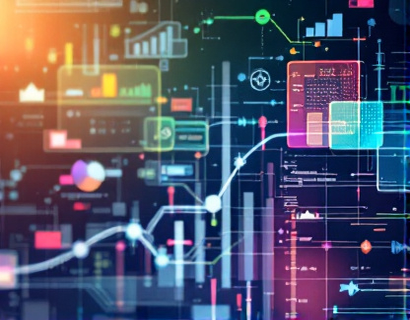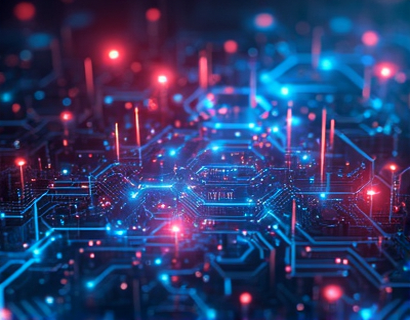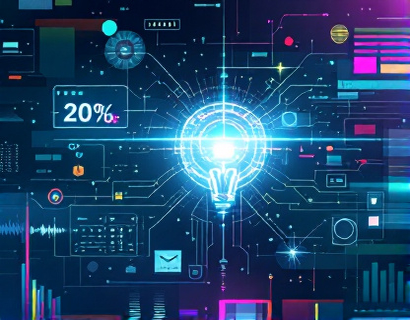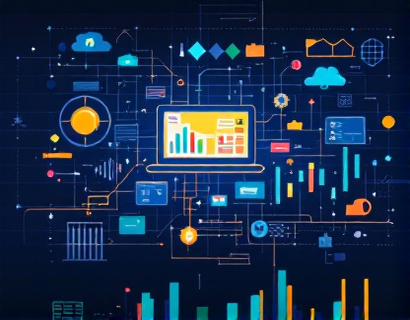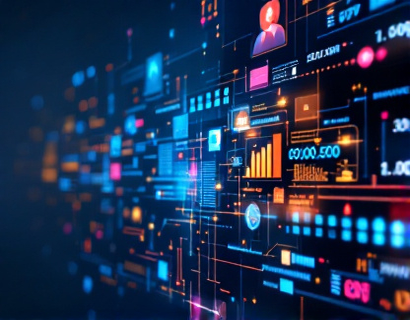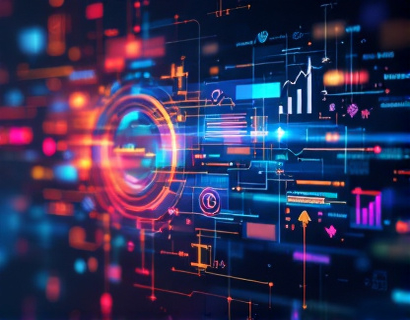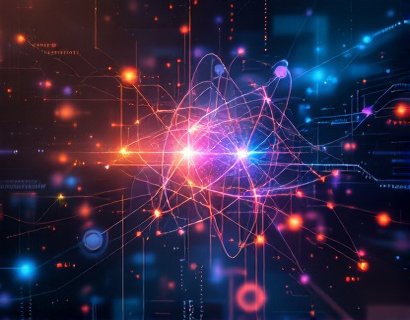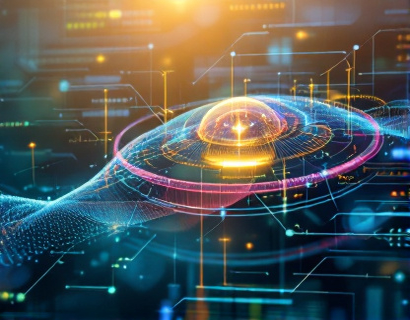Transforming Productivity in the Digital Age: The Synergy of AI and Cryptocurrency
The integration of artificial intelligence (AI) and cryptocurrency is revolutionizing the way we approach productivity in the digital age. This synergy is not just about combining two advanced technologies but about creating a new paradigm where workflow and task management are optimized to unprecedented levels. For tech-savvy professionals and early adopters, this convergence offers a glimpse into a future where digital tools are smarter, more efficient, and deeply integrated with the economic incentives of the blockchain.
Understanding the Individual Impacts
Before delving into the combined effects, it's essential to understand the individual impacts of AI and cryptocurrency on productivity.
AI has transformed various industries by automating routine tasks, providing predictive analytics, and enhancing decision-making processes. In the context of productivity, AI-powered tools can analyze vast amounts of data to identify patterns and inefficiencies, suggesting optimized workflows and task prioritization. Machine learning algorithms can adapt to user behavior, learning from past actions to automate repetitive tasks and provide personalized recommendations. This not only saves time but also reduces the cognitive load on users, allowing them to focus on higher-value activities.
Cryptocurrency, on the other hand, introduces a decentralized and transparent way of conducting transactions. The blockchain technology underlying cryptocurrencies ensures security, immutability, and transparency, which can significantly enhance trust and efficiency in digital interactions. Smart contracts, a key feature of blockchain, automate and enforce contractual obligations without the need for intermediaries, reducing delays and costs. This technology can be leveraged to create decentralized applications (dApps) that streamline various aspects of productivity, from project management to financial transactions.
The Synergistic Effect of AI and Cryptocurrency
The true power emerges when AI and cryptocurrency are combined. This synergy creates a feedback loop where AI enhances the functionality of blockchain-based systems, and blockchain provides a secure and transparent environment for AI to operate.
One of the most significant applications of this combination is in the realm of decentralized productivity platforms. These platforms use AI to manage and optimize tasks while leveraging blockchain for secure and transparent transaction processing. For instance, a decentralized task management system can use AI to assign tasks based on user availability, skills, and past performance, while ensuring that all transactions related to task completion and compensation are recorded on a blockchain. This ensures that all parties involved have a transparent and tamper-proof record of their contributions and rewards.
Another area where AI and cryptocurrency intersect is in the creation of tokenized incentives. By issuing tokens that represent specific rewards or utilities within a platform, organizations can motivate users to engage more actively. AI can dynamically adjust these tokens based on user behavior and platform needs, ensuring that incentives are always aligned with desired outcomes. This approach not only boosts user engagement but also creates a self-sustaining ecosystem where the value of tokens is directly tied to the platform's success.
Enhancing Workflow with AI-Driven dApps
Decentralized applications (dApps) powered by AI and blockchain are redefining workflow management. These applications can automate complex business processes, from project planning to execution and monitoring. For example, an AI-driven dApp can analyze project requirements, allocate resources, set milestones, and monitor progress in real-time. All transactions, such as payments for services rendered or resource allocation, are recorded on a blockchain, ensuring transparency and accountability.
One innovative solution is the use of AI for predictive maintenance in project workflows. By analyzing historical data and real-time inputs, AI can predict potential bottlenecks or failures in the workflow and suggest preemptive actions. This proactive approach minimizes disruptions and ensures smooth project execution. Blockchain can then be used to record these predictions and actions, providing a verifiable audit trail.
Smart Contracts for Automated Task Management
Smart contracts are a cornerstone of blockchain technology, and when combined with AI, they can significantly enhance task management. A smart contract can be programmed to execute specific actions based on predefined conditions, such as the completion of a task or the receipt of payment. AI can optimize these conditions by analyzing data from various sources, ensuring that the smart contract operates efficiently and effectively.
For instance, in a collaborative project, a smart contract can be set up to release payment to a freelancer once their work is verified by the AI system. The AI can analyze the quality and completeness of the work, ensuring that payments are only released when the criteria are met. This not only speeds up the payment process but also reduces the risk of disputes and delays.
Tokenized Rewards and Gamification
Tokenized rewards are another powerful tool for enhancing productivity through the AI-cryptocurrency synergy. By issuing tokens that represent achievements or contributions, organizations can create a gamified environment that motivates users to perform better. AI can personalize these tokens based on individual goals and preferences, making the reward system more effective.
For example, in a corporate setting, employees can earn tokens for completing tasks, achieving milestones, or contributing to team success. These tokens can be used within the organization for various benefits, such as access to premium tools, participation in exclusive events, or even financial rewards. The AI system can dynamically adjust the token economy based on performance metrics, ensuring that the incentives remain relevant and motivating.
Decentralized Identity and Access Management
The integration of AI and blockchain also revolutionizes identity and access management in digital workspaces. Decentralized identity solutions, powered by blockchain, allow users to control their digital identities securely and privately. AI can enhance this by providing advanced authentication methods, such as biometric verification, and by analyzing user behavior to detect and prevent unauthorized access.
In a decentralized work environment, AI can manage access permissions based on real-time data and user roles. For instance, an AI system can dynamically grant or revoke access to specific resources or projects based on the current needs and the user's performance. Blockchain ensures that all access control decisions are transparent and immutable, building trust among users and stakeholders.
Challenges and Considerations
While the potential benefits are significant, there are also challenges and considerations to keep in mind when implementing AI and cryptocurrency solutions for productivity.
First, the technical complexity of integrating these technologies requires a skilled workforce. Organizations need to invest in training or hire professionals who understand both AI and blockchain. Second, regulatory compliance is a critical issue, especially when dealing with cryptocurrencies. Ensuring that all operations adhere to local and international regulations is essential to avoid legal risks.
Privacy and security are also paramount. While blockchain offers a high level of security, the integration with AI systems must be carefully designed to protect sensitive data. Implementing robust encryption and access control mechanisms is crucial to maintaining user trust.
The Future of Productivity
The future of productivity in the digital age is increasingly shaped by the synergy of AI and cryptocurrency. As these technologies continue to evolve, we can expect even more innovative solutions that further enhance workflow and task management. The key for organizations and individuals is to stay informed and adapt to these changes, leveraging the power of AI and blockchain to achieve greater efficiency and success.
In conclusion, the combination of AI and cryptocurrency is not just a technological trend but a transformative force that is redefining productivity. By embracing this synergy, tech-savvy professionals and early adopters can stay ahead of the curve, optimizing their workflows and unlocking new possibilities in the digital landscape.





